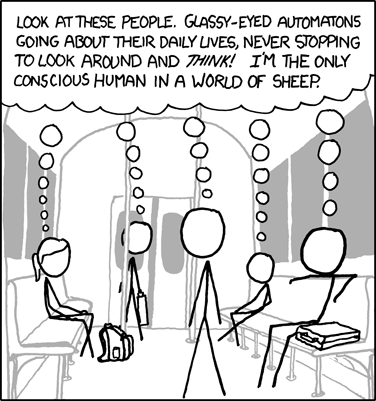The world of video games is a tumultuous one. Video game releases look more like big budget movie releases these days, and in some cases they make even more money. So a big problem with a big video game release can be big trouble, and Ubisoft’s recent release of Assassin’s Creed: Unity has been nothing but trouble. The game was reportedly full of bugs, and it got so bad that developers just gave users additional content for free. Millions of consumers, however, had already paid for that additional content in the form of pre-ordering a “Season Pass,” so Ubisoft had to offer another apology and another free game to appease consumers. This is known in the industry as “shining a turd.”
There is a little problem with this so called “free game” however. It’s ain’t free, even though Ubisoft unequivocally claims it is. Here is a screen cap of Ubisoft’s free game offer, in case they take the page down. I have used my amazing MS Paint skillz to highlight the “free” part:
Here’s the catch: when you try and download the game, Ubisoft makes you sign a boilerplate “clickwrap” agreement that waives your right to sue Ubisoft for all of the tremendously awful problems with Assassin’s Creed: Unity.
You hereby irrevocably and unconditionally RELEASE, WAIVE, AND FOREVER DISCHARGE AND COVENANT NOT TO SUE Ubisoft Entertainment S.A., and each of its past, present and future divisions, parent companies, subsidiaries, affiliates, predecessors, successors and assigns, together with all of their respective past, present and future employees, officers, shareholders, directors and agents, and those who give recommendations, directions, or instructions or engage in risk evaluation or loss control activities regarding the Campaign (all for the purposes herein referred to as “Released Parties”) FROM ANY AND ALL LIABILITY TO YOU, your assigns, heirs, and next of kin FOR ANY AND ALL CLAIMS, DEMANDS, CHARGES, LAWSUITS, DEBTS, DEFENSES, ACTIONS OR CAUSES OF ACTION, OBLIGATIONS, DAMAGES, LOSS OF SERVICE, COMPENSATION, PAIN AND SUFFERING, ATTORNEYS’ FEES, AND COST AND EXPENSES OF SUIT, KNOWN OR UNKNOWN, SUSPECTED OR UNSUSPECTED, ARISING OUT OF OR RELATED TO THE PURCHASE, ACQUISITION, RENTAL, POSSESSION AND/OR USAGE, AND/OR THE INTENT TO PURCHASE, ACQUIRE, RENT, POSSESS AND/OR USE, THE ASSASSIN’S CREED UNITY VIDEO GAME AND/OR THE ASSASSIN’S CREED UNITY SEASON PASS ON ANY AND ALL PLATFORMS, AND/OR RELATED TO THE CAMPAIGN, WHETHER CAUSED BY THE NEGLIGENCE OF THE RELEASED PARTIES OR OTHERWISE.
A settlement agreement is a contract and a contract by definition cannot be created without exchanging something of value. Waiving your right to sue Ubisoft for damages, or to participate in a class action, has value. That means this “free” download isn’t free, and Ubisoft is arguably creating yet another problem by engaging in false advertising in violation of a variety of false advertising laws, including California Business and Professions Code section 17500:
It is unlawful for any person, firm, corporation or association, or any employee thereof with intent directly or indirectly to dispose of real or personal property or to perform services, professional or otherwise, or anything of any nature whatsoever or to induce the public to enter into any obligation relating thereto, to make or disseminate or cause to be made or disseminated before the public in this state, or to make or disseminate or cause to be made or disseminated from this state before the public in any state, in any newspaper or other publication, or any advertising device, or by public outcry or proclamation, or in any other manner or means whatever, including over the Internet, any statement, concerning that real or personal property or those services, professional or otherwise, or concerning any circumstance or matter of fact connected with the proposed performance or disposition thereof, which is untrue or misleading, and which is known, or which by the exercise of reasonable care should be known, to be untrue or misleading, or for any person, firm, or corporation to so make or disseminate or cause to be so made or disseminated any such statement as part of a plan or scheme with the intent not to sell that personal property or those services, professional or otherwise, so advertised at the price stated therein, or as so advertised. Any violation of the provisions of this section is a misdemeanor punishable by imprisonment in the county jail not exceeding six months, or by a fine not exceeding two thousand five hundred dollars ($2,500), or by both that imprisonment and fine.
Ubisoft is intentionally “disposing of” (i.e., giving away or selling) property (the game) along with “inducing the public to enter into any obligation” (i.e., waiver of their right to sue) with “untrue or misleading” statements, namely, that the “free” download is “free,” when in reality the consumer has to waive their rights to sue. This is illegal.
I am not sure what is sadder: that Ubisoft is this stupid or that we have become so cynical that internet outrage is basically limited to “well that sucks” type comments such as Game Informer’s comment that “these terms aren’t surprising.” Even Consumerist–usually on top of these sorts of scams–makes no mention of the legality of this clause. (They do accurately point out that this goes beyond the normal consumer fleecing we see in forced arbitration clauses, a favorite topic of mine.) Have we become so jaded that we simply assume a company can lie and tell us something is free when it plainly is not at all free?



Recent Comments